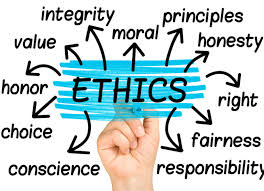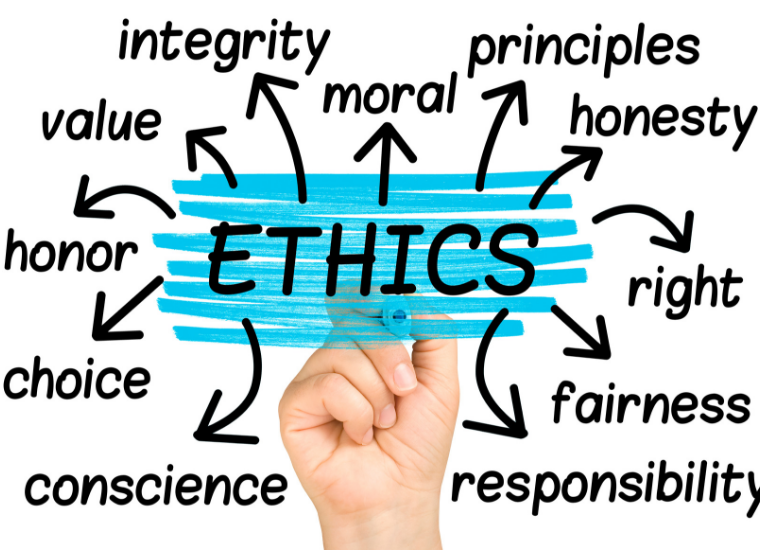NEC Learning Management System
Skip course categories
Course categories
NEC (440)
Skip available courses
Available courses
- Teacher: MANJULA DEVI R
- Teacher: MUGUNTHAMALA S
- Teacher: Subaselvi S
- Teacher: Lincy A
- Teacher: Rajalakshmi A
- Teacher: SHUNMUGA PRIYA B
- Teacher: Dr. Ida Christy J
- Teacher: Gayathri M
- Teacher: Navedha Evanjalin R
- Teacher: Sandhiya R
- Teacher: Janani Ratthna S.G
- Teacher: HARSHANI R
It is a basic level common one credit course.
- Teacher: DR IYAHRAJA S
- Teacher: DR NEELAKANTAN M A
- Teacher: DR THALAMUTHU S
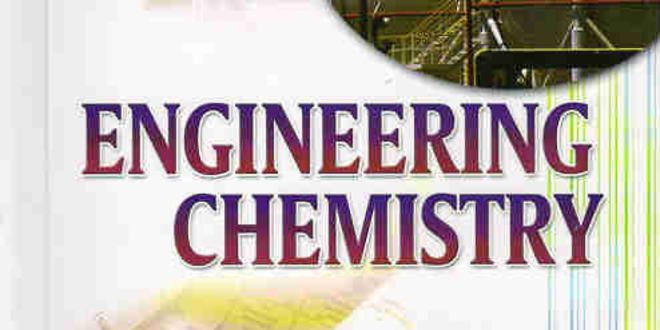
The course 23SH16C – Engineering Chemistry provides fundamental and applied knowledge of chemistry for engineering students. It introduces essential topics such as water treatment technologies, corrosion mechanisms, smart materials, batteries, and analytical instrumentation. Students learn about hardness, alkalinity, chloride content, desalination, and disinfection methods in water treatment. Corrosion types, prevention, and industrial control measures are emphasized. The smart materials section covers polymers, nano-composites, and their diverse applications. The batteries module introduces lead-acid, nickel-metal hydride, and advanced lithium-ion systems, including performance evaluation and safety. Instrumentation topics include UV-Vis, IR, potentiometry, conductometry, and thermal analysis. Practical components train students in quantitative estimation of ions, acids, and metals, while the soft skills module enhances communication and teamwork. Overall, the course strengthens problem-solving, analytical ability, and industry relevance.
- Teacher: THAMBA J
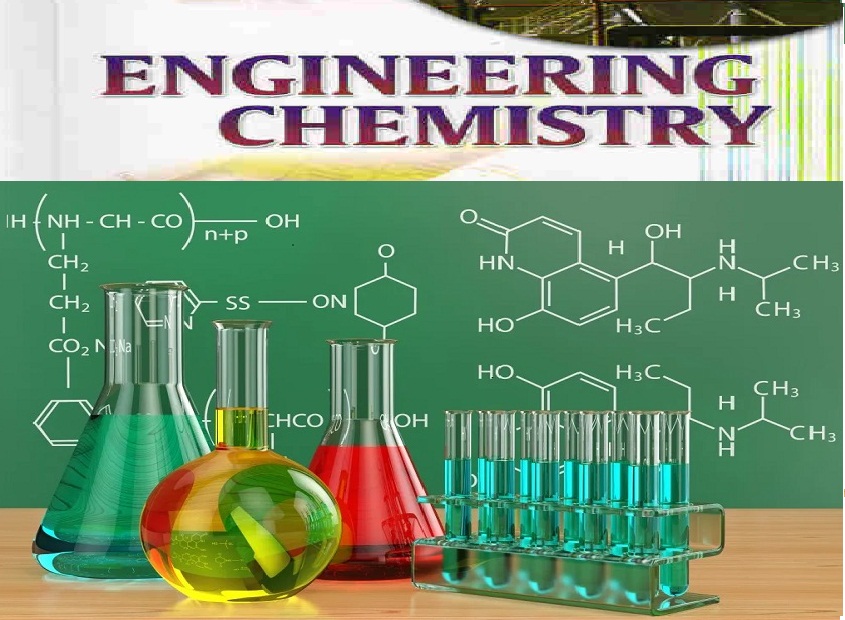
The course 23SH16C – Engineering Chemistry provides fundamental and applied knowledge of chemistry for engineering students. It introduces essential topics such as water treatment technologies, corrosion mechanisms, smart materials, batteries, and analytical instrumentation. Students learn about hardness, alkalinity, chloride content, desalination, and disinfection methods in water treatment. Corrosion types, prevention, and industrial control measures are emphasized. The smart materials section covers polymers, nanocomposites, and their diverse applications. The batteries module introduces lead-acid, nickel-metal hydride, and advanced lithium-ion systems, including performance evaluation and safety. Instrumentation topics include UV-Vis, IR, potentiometry, conductometry, and thermal analysis. Practical components train students in quantitative estimation of ions, acids, and metals, while the soft skills module enhances communication and teamwork. Overall, the course strengthens problem-solving, analytical ability, and industry relevance.
- Teacher: THAMBA J
- Teacher: DR NEELAKANTAN M A
- Teacher: CHITHIRAIKUMAR S
CO1: interpret the nature of quadratic form by orthogonal transformation.
CO2: identify the maxima and minima of functions.
CO3: solve ordinary differential equations.
CO4: find the solution of partial differential equations.
CO5: evaluate integrals of multivariate calculus.
- Teacher: BASITHA PARVEEN S S
Upon successful completion of the course the students will be able to:
Theory Components
COl: apply the characteristics of unit cell to identify the crystal structure (CDL1)
CO2: comprehend and apply the concepts of centre of mass and clasticity (CDL1)
CO3: explain thernodynamic parameters and fundamental laws and their
application in various processes (CDL1)
CO4: illustrate the applications of different lasers and optical fibers (CDL1)
CO5: interpret the quantum concepts, to illustrate the quantization of energy (CDL1)
Practical Components:
CO6: compare the mechanical properties of the materials due to bending and torsion (PDL1)
C07: analyze thermal conductivity of different bad conducting materials (PDL1)
CO8: explore the light-matter interaction by the phenomenon of interference and diffraction
- Teacher: Dr.Prabhu M
Upon successful completion of the course the students will be able to:
Theory Components
COl: apply the characteristics of unit cell to identify the crystal structure (CDL1)
CO2: comprehend and apply the concepts of centre of mass and clasticity (CDL1)
CO3: explain thernodynamic parameters and fundamental laws and their
application in various processes (CDL1)
CO4: illustrate the applications of different lasers and optical fibers (CDL1)
CO5: interpret the quantum concepts, to illustrate the quantization of energy (CDL1)
Practical Components:
CO6: compare the mechanical properties of the materials due to bending and torsion (PDL1)
C07: analyze thermal conductivity of different bad conducting materials (PDL1)
CO8: explore the light-matter interaction by the phenomenon of interference and diffraction
- Teacher: Dr.Prabhu M
Theory Components:
Upon successful completion of the course the students will be able to:
COl: apply the characteristics of unit cell to identify the crystal structure (CDL1)
CO2: comprehend and apply the concepts of centre of mass and clasticity (CDL1)
CO3: explain thernodynamic parameters and fundamental laws and their
application in various processes (CDL1)
CO4: illustrate the applications of different lasers and optical fibers (CDL1)
CO5: interpret the quantum concepts, to illustrate the quantization of energy (CDL1)
Practical Components:
CO6: compare the mechanical properties of the materials due to bending and torsion (PDL1)
C07: analyze thermal conductivity of different bad conducting materials (PDL1)
CO8: explore the light-matter interaction by the phenomenon of interference and diffraction
(PDL1)
- Teacher: Dr.Prabhu M
I YEAR I SEM
- Teacher: Thangaraj J
- Teacher: ANNAPOOPATHI M
- Teacher: Suguna it
- Teacher: BENO RANJANA J
- Teacher: GOWTHAMI N
CO1: infer appropriate methods to simplify computation
CO2: develop problem solving skills on Time and Work and enhance arithmetic ability
CO3: interpret fundamentals in quantitative techniques and solve problems quickly
CO4: improve quantitative skills and solve problems on permutation and Combination
CO5: acquire the knowledge of Cognitive ability and solve puzzles effectively
- Teacher: BASITHA PARVEEN S S
- Teacher: Pricilla Mary S
Different methods of surveying
- Teacher: Rajapriya P
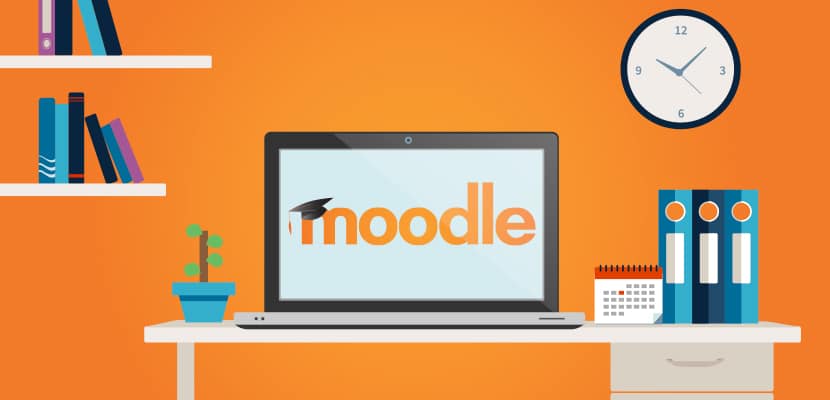
- This course is designed to provide comprehensive training on the Moodle Learning Management System (LMS), equipping participants with the knowledge and skills required to effectively use Moodle for teaching, learning, and course management.
- Through hands-on activities, participants will learn how to create and manage courses, add and organize content, facilitate student engagement, track learner progress, and use various Moodle tools such as assignments, quizzes, forums, and grading features.
- This training is ideal for educators, administrators, and content creators seeking to leverage Moodle for digital learning.
- Teacher: MOODLE Administrator
This elective course has been framed by an Industry M/s Mistral Solutions Bangalore.
The contents expose the product cycle with respect to strategies and components,the standards associated with product and product risk management analysis.
- Teacher: DEVAKUMAR T
- Teacher: SIVABALAN S
- Teacher: ANNAPOOPATHI M
- Teacher: Ganapathy P
- Teacher: SIVABALAN S
- Teacher: BASITHA PARVEEN S S
- Teacher: DEAN ACADEMIC
- Teacher: HOD AIDS
- Teacher: HOD CIVIL
- Teacher: HOD CSE
- Teacher: HOD ECE
- Teacher: HOD EEE
- Teacher: HOD IT
- Teacher: HOD MECHANICAL
- Teacher: Time Table NEC
- Teacher: HOD S&H
- Teacher: MALATHI S
This course provides a comprehensive introduction to Intellectual Property Rights (IPR), exploring their concepts, theories, types, and the balance between private rights and public interests. Students will examine the Indian Patent Act of 1970 and its significant amendments, focusing on patentability criteria, non-patentable inventions, and patent protection for pharmaceuticals and software.
Additionally, the course emphasizes the importance of effective IP search strategies, including hands-on practice to investigate state-of-the-art technologies. Through this curriculum, students will gain a thorough understanding of IPR's advantages and disadvantages, along with practical skills in IP research and analysis.
- Teacher: SANKAR I
It is one credit course for I Semester Engineering.
- Teacher: DR IYAHRAJA S
- Teacher: DR NEELAKANTAN M A
Technical English
- Teacher: Karthik S
- Teacher: SANKAR I
REGULATION-2023
I SEM -CSE-
- Teacher: Thangaraj J
Upon successful completion of the course the students will be able to:
Theory Components:
CO1: apply the characteristics of unit cell to identify the crystal structure (CDL1)
CO2: comprehend and apply the concepts of centre of mass and elasticity (CDL1)
CO3: explain thermodynamic parameters and fundamental laws and their
application in various processes (CDL1)
CO4: illustrate the applications of different lasers and optical fibers (CDL1)
CO5: interpret the quantum concepts, to illustrate the quantization of energy (CDL1)
Practical Components:
CO6: compare the mechanical properties of the materials due to bending and torsion (PDL1)
CO7: analyze thermal conductivity of different bad conducting materials (PDL1)
CO8: explore the light-matter interaction by the phenomenon of interference and diffraction (PDL1)
- Teacher: Dr.Prabhu M
Upon successful completion of the course the students will be able to:
Theory Components:
CO1: apply the characteristics of unit cell to identify the crystal structure (CDL1)
CO2: comprehend and apply the concepts of centre of mass and elasticity (CDL1)
CO3: explain thermodynamic parameters and fundamental laws and their
application in various processes (CDL1)
CO4: illustrate the applications of different lasers and optical fibers (CDL1)
CO5: interpret the quantum concepts, to illustrate the quantization of energy (CDL1)
Practical Components:
CO6: compare the mechanical properties of the materials due to bending and torsion (PDL1)
CO7: analyze thermal conductivity of different bad conducting materials (PDL1)
CO8: explore the light-matter interaction by the phenomenon of interference and diffraction (PDL1)
- Teacher: Dr.Prabhu M
CO1: interpret the nature of quadratic form by orthogonal transformation.
CO2: identify the maxima and minima of functions.
CO3: solve ordinary differential equations.
CO4: find the solution of partial differential equations.
CO5: evaluate integrals of multivariate calculus.
- Teacher: Dr. Vanalakshmi R
- Teacher: Kalaiselvi T
- Teacher: Amsaveni K
2024-2025 Odd Semester
PG I year Course
PG I year Course
- Teacher: Ummu Sabura
23EC33c Electron Devices- Integrated course for III Semester
- Teacher: PRASANNA VENKATESAN K J
It is a core fundamental course for B.E. Mechanical Engineering
- Teacher: DR IYAHRAJA S
2024-24 odd sem sub
- Teacher: DR. MAHESWARI R V
2024-24 odd sem sub
- Teacher: DR. MAHESWARI R V
- Teacher: ARULPANDIAN V
NEC-ECE-EN-ME
- Teacher: SUBRAMANIAN K
NEC-ECE-CN-III Sem
- Teacher: SUBRAMANIAN K
- Teacher: ANTONY JEFFREY VAZ F
- Teacher: MANJULA DEVI R
- Teacher: KARTHIKA S
- Teacher: MUGUNTHAMALA S
- Teacher: Subaselvi S
23EC33C electronic devices for III Sem ECE students
- Teacher: BALAMURUGAN C
- Teacher: SHUNMUGA PRIYA B
- Teacher: Rathipathi R
- Teacher: DHEENATHAYALAN S
- Teacher: DR ARUN SAMUEL T S
- Teacher: MANIMEGALAI M
- Teacher: RAJAGOPAL S
Technical English
- Teacher: Karthik S
- Teacher: Dharani P
- Teacher: Pavithra G
- Teacher: HOD CIVIL
- Teacher: HOD CSE
- Teacher: HOD ECE
- Teacher: HOD EEE
- Teacher: HOD IT
- Teacher: Time Table MECH
- Teacher: HOD MECHANICAL
- Teacher: PRINCIPAL NEC
- Teacher: HOD S&H
- Teacher: SANKAR I
- Teacher: SANKAR I
- Teacher: MIRRA K.B
- Teacher: Janani Ratthna S.G
- Teacher: MIRRA K.B
mandatory course
- Teacher: GANAPATHY RAM B
VALUE ADDED COURSE
- Teacher: VAZHAN ARUL SANTHIYA R
- Teacher: SANKAR I
Core Course
- Teacher: DR IYAHRAJA S
Engineering Graphics is a common language for all Engineer's practicing all over the world. Its a Mandatory course to all Engineering Graduates.
- Teacher: VIGNESH KUMAR R
- Teacher: VIJAYAKUMAR R
SIR PLEASE ACCEPT THE COURSE
- Teacher: Mr. Darral Alfred A
- Teacher: KUMAR K
- Teacher: PRADEEPRAJ K
DS thy & Lab
- Teacher: NASKATH J
- Teacher: Dhanalakshmi C
- Teacher: ANTONY JEFFREY VAZ F
Skip courses








